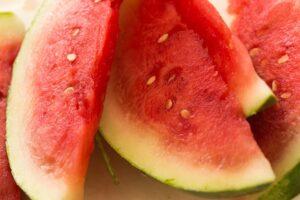Juicy Start: Hungary’s 2025 Melon Season Has Officially Kicked Off
Despite a cool spring that delayed the start of the Hungarian melon season by a few weeks, local growers are once again offering sweet, top-quality watermelons and cantaloupes. This was the key message at the joint press conference held by the National Chamber of Agriculture (NAK), the Hungarian Fruit and Vegetable Interprofessional Organization (FruitVeB), and the Hungarian Melon Growers Association. The first domestic melons have already hit store shelves, and from mid-July, consumers can expect an abundant supply throughout the country.

(Photo: Pixabay)
Hungary’s melon sector has undergone remarkable technological development in recent years. Traditional, less resilient varieties have increasingly been replaced by grafted and hybrid ones that offer higher yield security and better quality. Thanks to these improvements, Hungary has managed to maintain production levels even as the cultivation area has halved over the past decade. This transformation is also supported by the growing use of plastic-covered cultivation, allowing an earlier start to the season – although this year’s cold spring posed a challenge even to that advantage.
Hungarian melons are unmatched in flavor
The taste of Hungarian melons is often said to be superior to those imported from southern countries. The diurnal temperature variations in Hungary help balance the sugar and acid content in the fruit, resulting in a fuller flavor. Consumers agree: average annual consumption in Hungary is 10–12 kg per person, and during particularly warm summers, this can be even higher.
Changing demand, changing supply
Shifts in consumer preferences have also influenced what’s grown. Smaller-sized (4–6 kg) watermelons and seedless varieties are gaining popularity. Still, the classic dark-striped types remain in demand, especially in supermarket chains. Among cantaloupes, the Cantaloupe and Galia varieties continue to dominate the market, particularly those grown in Bács-Kiskun County.
Growth in domestic and export markets
Since 2022, the watermelon growing area in Hungary has increased by around 1,100 hectares, now totaling 3,700 hectares. Szabolcs and Békés counties are the country’s main production areas. Cantaloupe cultivation is also on the rise, reaching 500 hectares in 2025 – a 15% increase from the previous year. Producers expect yields of about 50 tons per hectare, potentially resulting in 175,000 tons of watermelons. With domestic consumption estimated at 110,000 tons, the surplus will likely be exported – primarily to Poland, the Czech Republic, Slovakia, and Germany.
Exports bounce back – Hungarian melons are once again competitive
Hungarian melon exports are on the rise again. In 2024, the country exported 46,000 tons of watermelon. This trend is partly driven by climate change, which is affecting production in southern Europe, making imports from those regions more expensive and less reliable. This gives Hungary a competitive edge – especially when growers continue to offer high-quality, consistent products tailored to international markets.
Organization is key to success
Since 2018, the National Chamber of Agriculture and the Hungarian Melon Growers Association have been working together to improve the sector’s competitiveness. Cooperation between producers and retail chains has become increasingly close, ensuring high and uniform quality. Experts emphasize that long-term success depends on continued collaboration and the organization of producers, particularly to strengthen Hungary’s presence in export markets.
Healthy, refreshing, and local
Watermelon is more than just a summer treat – it’s a true superfruit. With more than 90% water content, it’s excellent for hydration in hot weather. It’s also rich in calcium, potassium, magnesium, and vitamin A, and regular consumption can contribute to improved nutritional intake, especially for children. By choosing Hungarian melons, consumers not only enjoy fresh and delicious fruit but also support local farmers and families. This summer, make the local choice – Hungarian melons won’t disappoint.
NAK
Related news
CBAM causes market disruption
🎧 Hallgasd a cikket: Lejátszás Szünet Folytatás Leállítás Nyelv: Auto…
Read more >The government provides significant funding to support the development of crop dryers
🎧 Hallgasd a cikket: Lejátszás Szünet Folytatás Leállítás Nyelv: Auto…
Read more >Agricultural vocational training also places great emphasis on irrigation development
🎧 Hallgasd a cikket: Lejátszás Szünet Folytatás Leállítás Nyelv: Auto…
Read more >Related news
Nestlé to sell remaining ice-cream assets but commits to Froneri venture
🎧 Hallgasd a cikket: Lejátszás Szünet Folytatás Leállítás Nyelv: Auto…
Read more >40 secure jobs, sustainable solutions – new BURGER KING® in Csepel
🎧 Hallgasd a cikket: Lejátszás Szünet Folytatás Leállítás Nyelv: Auto…
Read more >








